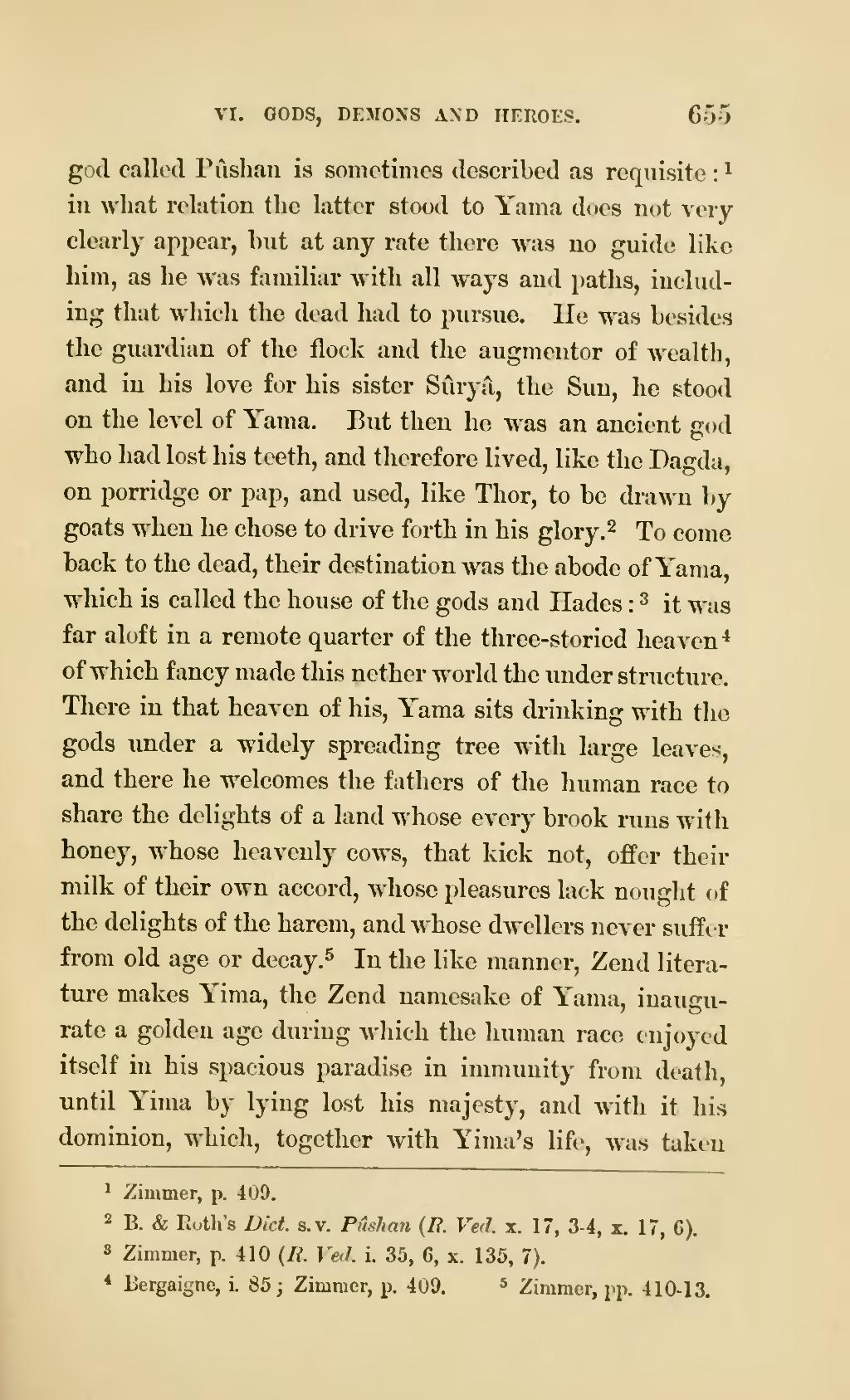god called Pûshan is sometimes described as requisite:[1] in what relation the latter stood to Yama does not very clearly appear, but at any rate there was no guide like him, as he was familiar with all ways and paths, including that which the dead had to pursue. He was besides the guardian of the flock and the augmentor of wealth, and in his love for his sister Sûryâ, the Sun, he stood on the level of Yama. But then he was an ancient god who had lost his teeth, and therefore lived, like the Dagda, on porridge or pap, and used, like Thor, to be drawn by goats when he chose to drive forth in his glory.[2] To come back to the dead, their destination was the abode of Yama, which is called the house of the gods and Hades:[3] it was far aloft in a remote quarter of the three-storied heaven[4] of which fancy made this nether world the under structure. There in that heaven of his, Yama sits drinking with the gods under a widely spreading tree with large leaves, and there he welcomes the fathers of the human race to share the delights of a land whose every brook runs with honey, whose heavenly cows, that kick not, offer their milk of their own accord, whose pleasures lack nought of the delights of the harem, and whose dwellers never suffer from old age or decay.[5] In the like manner, Zend literature makes Yima, the Zend namesake of Yama, inaugurate a golden age during which the human race enjoyed itself in his spacious paradise in immunity from death, until Yima by lying lost his majesty, and with it his dominion, which, together with Yima's life, was taken
